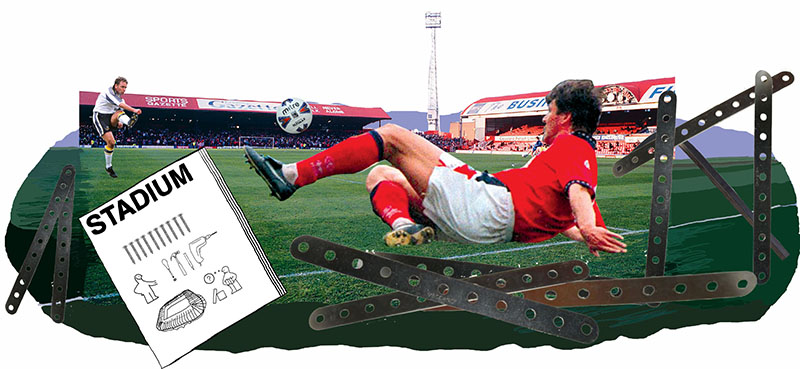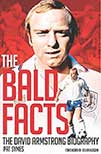
Search: ' Ayresome Park'
Stories

From managers avoiding promotion to dodgy referees, supporters love making up exotic reasons for why their team have lost
There was a time when strike partnerships rolled off the tongue like superheroes and clubs even thought foreign players should be kept in pairs, as Harry Pearson explains
 The David Armstrong biography
The David Armstrong biography
by David Armstrong
with Pat Symes
Pitch Publishing, £17.99
Reviewed by Harry Pearson
From WSC 324 February 2014
There was always something a little Dickensian about Middlesbrough and Southampton midfielder David Armstrong. Small, prematurely bald, slightly portly with a face that fell naturally into an expression of melancholy, he was more Oliver Twist than the 1970s footballer of popular mythology. Even his nickname Spike has a whiff of the Victorian workhouse about it.
The nickname, it transpires, was given to him by Middlesbrough team-mate Basil Stonehouse for no other reason than that Stonehouse thought someone in the squad should have it. It’s the kind of anticlimactic tale that seems to have characterised Spike’s career. A hard-working left-sided player and an excellent passer and crosser, Armstrong scored over 100 goals from midfield and was so robust at times he seemed indestructible (he made 356 consecutive appearances for Boro).
He was not a dribbler though, nor was he quick, both of which counted against him when it came to international honours – he was only capped twice by his country. Trophies too eluded him. At Ayresome Park Jack Charlton’s reluctance to spend money – faced with a choice between Trevor Francis or Alf Wood, Big Jack opts, naturally, for the latter – scotches Middlesbrough’s chances of silverware, while Southampton fall agonisingly short of a Double in 1983-84 with Armstrong playing in all 51 games.
While other footballers’ autobiographies are often brimming with bitterness or rancour, The Bald Facts is tinged with sadness and regret. Armstrong’s career ended by an ankle injury that was treated in so bungling a manner the player is barely able to stand up for several years, his finances in tatters, you come away from reading it with the impression that the midfielder feels let down, not necessarily by individuals, but by the game itself.
As is too often the case the player’s unworldliness has hardly helped his cause. You don’t need to be a genius to realise that when you are going to court for an alimony hearing driving into the car park in a brand new red Mercedes is not the best idea. That’s what Armstrong does though. The results are predictable – his wife gets the house and whacking great yearly maintenance payments. “I came out of that court and burst pathetically into tears,” Spike records. There are a lot of tears in these pages, the odd laugh too, and a rather puzzling story about dognapping and Joe Laidlaw. Ultimately though there’s a sense of promise unfulfilled and of tales half told.
I started reading The Bald Facts during the hullabaloo that followed FA chairman Greg Dyke’s comments on the number of foreign players in the Premier League weakening the national team. Armstrong, of course, played when there were very few non-British professionals in the English top flight so it is instructive to see the midfield Ron Greenwood selected for the game against West Germany in 1982. Alongside Armstrong were Alan Devonshire, Ricky Hill and Ray Wilkins. Is that the sort of line-up that would strike fear into the hearts of the current Spanish, German or Brazilian sides?
There are now so many outlets for a fan’s fury that it has become a 24-hour job to be angry, writes Harry Pearson
A few years ago a friend of mine took his six-year-old son to his first match. It was at the Stadium of Light during a fractious period for the home side. They conceded early. As all around him fans shook their fists and vented their fury with the players, the manager, the owner, my friend looked across at his son. The boy was weeping uncontrollable. “What’s the matter?” his father asked. “I don’t like it. I don’t like it,” his son sobbed. “Why are the men so angry?” They left at half time.
